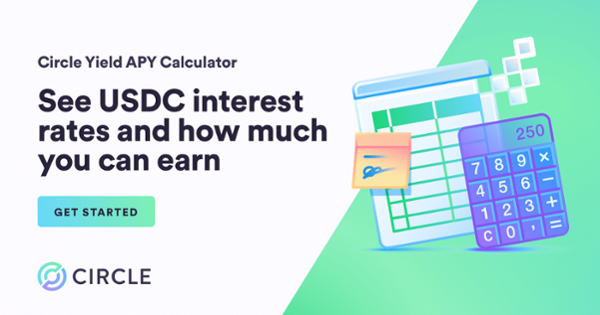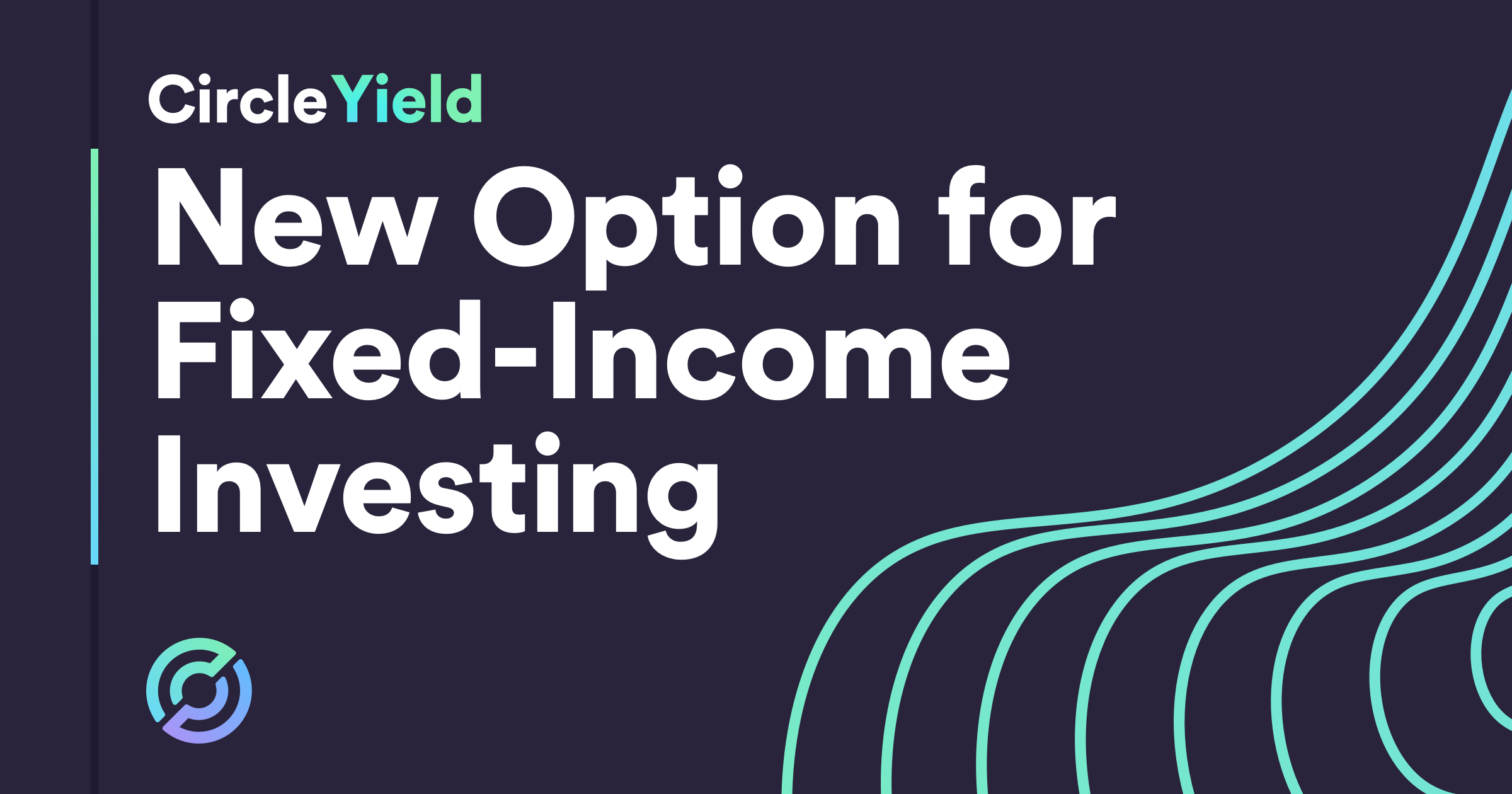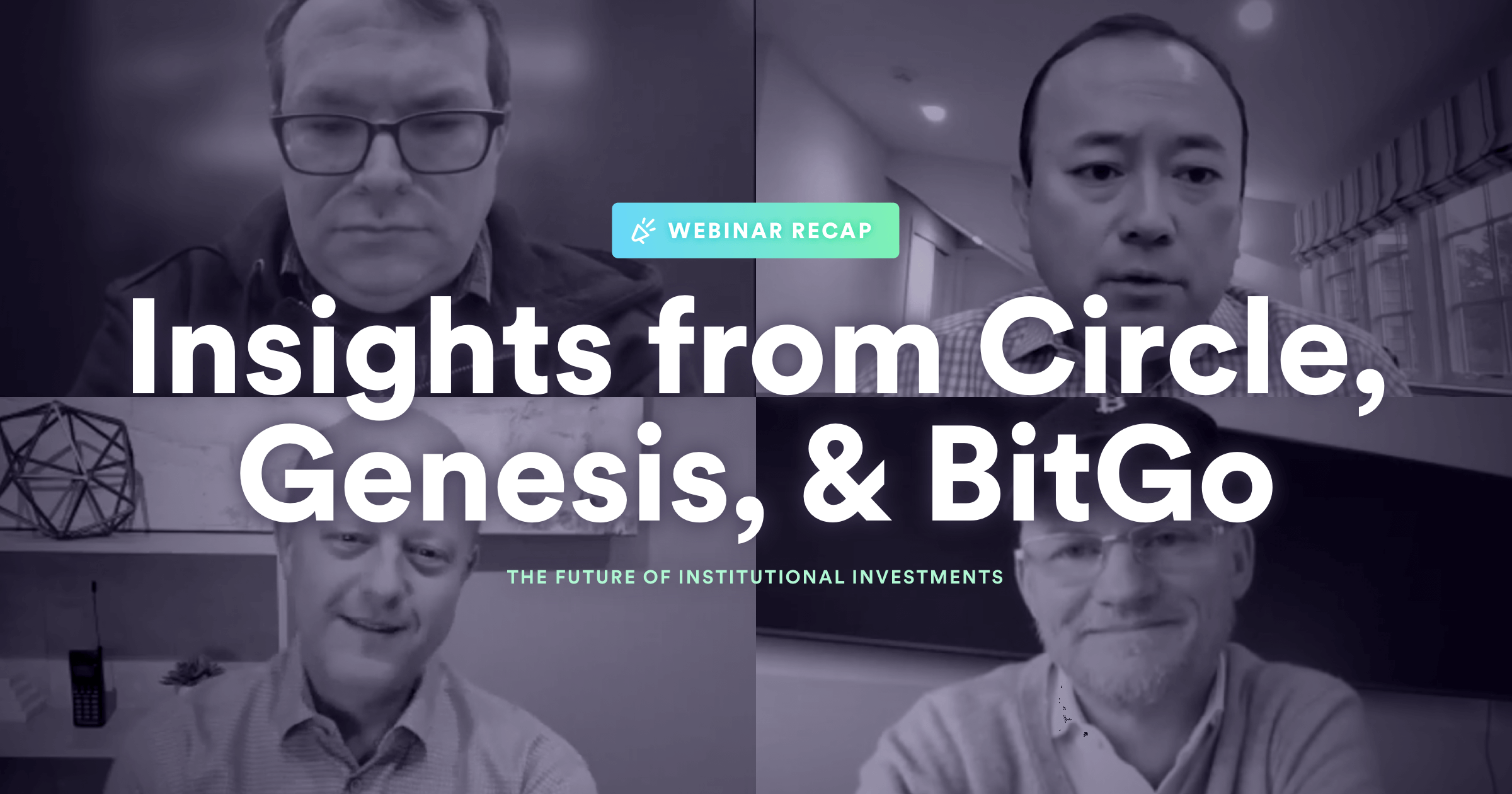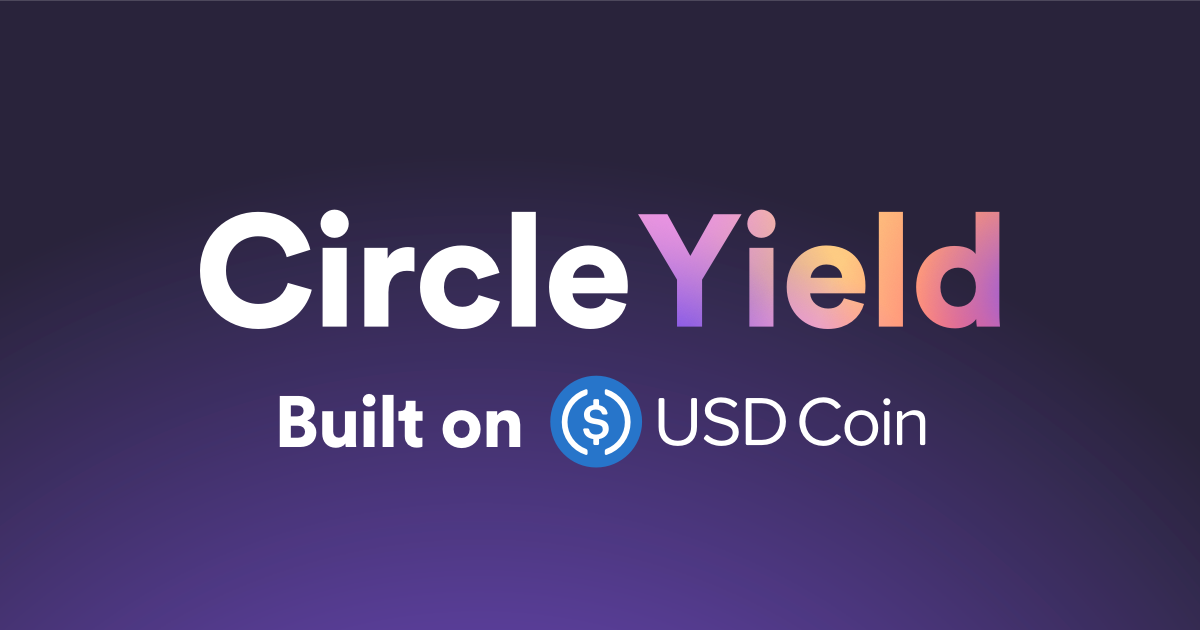As of November 17, 2022, Circle Yield is not accepting new loans. We are evaluating future updates to the program.
Fixed-income investing is a lower-risk investment strategy that prioritizes the preservation of capital over alternative investment objectives like growth by investing in liquid cash equivalent securities and bonds.
It is a core part of the investing matrix for hedge funds, family offices, corporate treasurers, and high-net-worth individuals (HNWIs) because it reduces portfolio volatility and preserves the purchasing power of capital.
In this article we'll explore the basics of fixed-income investing and how USDC yield products like Circle Yield are helping corporate treasurers and investors access higher yields on working capital and strategic cash.
How big is the fixed-income market in the United States and globally in 2021?
According to the 3Q21 U.S. Fixed Income Markets Report by the Securities Industry and Financial Markets Association (SIFMA), a leading trade association, the U.S. fixed-income market is $48 trillion.
The same report calculates the U.S. fixed-income market to be responsible for nearly 38% of the global fixed-income market as of the first quarter of 2021.
According to SIFMA’s 3Q21 U.S. Fixed Income Markets Report, the global fixed-income market has $123 trillion of outstanding securities as of 1Q21.
How did the U.S. fixed-income investment market grow during the first year of the COVID-19 Pandemic?
According to the July 28, 2021 U.S. Capital Markets Report by SIFMA, the United States fixed-income market saw U.S. long-term fixed-income issuance increase 48.1% increase, corporate bonds increase 60.4%, Treasury securities increase 32.7%, long-term municipal bond issuance increase 13.6%, and federal agency securities increase 26.5% in 2020 compared to 2019.
What are common fixed-income investment instruments?
There are various fixed-income instruments including:
- Cash management bills
- Treasury Bills (T-Bills)
- Treasury Inflation Protected Securities (TIPS)
- Government bonds
- Municipal bonds
- Corporate bonds
- Commercial paper
- Bank Time Deposits
- Certificates of Deposit (CDs)
- Money Market Funds
- Direct lending
- Overnight Funds
- Money Market Accounts
- Bankers Acceptances
- Repurchase Agreements (Repos)
What are common fixed-income investing objectives?
Fixed-income investing focuses on a few key objectives:
- Diversification
- Capital Preservation
- Income Generation
1. Diversification
Diversification is a risk management strategy that aims to create an investment portfolio with a variety of securities to limit downside risk from any one asset while maximizing earning potential.
For traditional balanced portfolios that use a 60/40 or 70/30 equity-to-bond ratio, fixed-income instruments provide modest interest rate gains while reducing the portfolio’s overall exposure to risk.
2. Capital Preservation
Capital preservation is an investment strategy that focuses on preserving the purchasing power of capital assets by investing in safe, low-risk fixed-income investment products.
Fixed-income instruments like money market funds, bank time deposits, and treasury inflation protected securities (TIPS) offer low, predictable yields while preserving the buying power of the underlying cash assets.
3. Income Generation
The goal of income generation is to hold assets that generate cash on a regular basis that the investor can use to fund business or personal expenses. One example of a fixed-income product that pays out a fixed stream of payments is an annuity.
 Common Types of Fixed-Income Strategies
Common Types of Fixed-Income Strategies
Common fixed-income strategies include:
- Active fixed-income investing
- Passive fixed-income investing
- Fixed-income factor investing
- Systematic fixed-income investing
- ESG fixed-income investing
- Tax efficient fixed-income investing
- Quantitative fixed-income investing
- Fixed-income relative value investing
- Responsible investing in fixed income
- Scientific fixed-income investing
- Total-return investing
- Indexed fixed-income investing
What is the difference between active and passive fixed-income investing?
The primary difference between active and passive fixed-income investing is how the investors' funds are managed: active fixed-income (FI) strategies take market conditions into account to try to outperform the market, whereas passive FI strategies aim to mirror the market by following fixed-income indexes while requiring minimal oversight or trading.
Common Types of Fixed-Income Segments
Fixed-income investors can earn interest on assets across a variety of segments such as:
- Broad or Liquid Core Fixed Income
- Core/Beta Fixed Income
- Non-core or Satellite Fixed Income
- Development Market Sovereign
- Emerging Market Debt
- Global Aggregate / Core
- Core Plus Fixed Income
Core fixed-income investments include safer instruments such as government bonds and investment grade U.S. debt.
These products typically earn lower yield than riskier, non-core fixed-income products such as high-yield bonds (i.e. below investment-grade debt obligations) and corporate debt obligations from emerging markets.
Circle Yield*: An Alternative Fixed-Income Investment Strategy for Short-term Cash Assets
An emerging alternative fixed-income investment segment that institutional investors, fund managers, corporate treasurers, and family offices should know about is crypto fixed-income investing.
Crypto fixed-income investing (also referred to as crypto yield) offers investors a passive way to generally earn higher interest on cash reserves that have been converted on a 1:1 basis with dollar digital currencies like USD Coin (USDC), the world’s fastest-growing, fully regulated dollar digital stablecoin.
Compared to many traditional fixed-income investment products, Circle Yield offers accredited investors superior interest rates with ultra short-term durations.
In extended low-yield, high-inflation environments, preserving capital while maintaining a balanced portfolio is a top investment objective of corporate treasurers.
Fixed-income USDC yield products can provide an alternative short-term cash strategy that offers higher returns on cash while simultaneously preserving strategic capital.
What is crypto fixed-income investing?
Crypto fixed-income investing involves depositing digital assets like USDC into smart-contract-enabled financial products that programmatically lend digital assets to cryptocurrency borrowers.
Crypto fixed-income investing (i.e. crypto yield) gained worldwide popularity in early 2020 with the emergence of decentralized finance (DeFi), a niche within the broader cryptocurrency sector that focuses on replacing traditional financial instruments that are managed by intermediaries with smart contracts.
As of January 20th, 2022, DeFi protocols on blockchains hold over $230B of digital assets under management (AUM), which is also known as TVL (i.e. total-value locked). TVL is the total dollar amount of digital assets locked into DeFi lending smart contracts.
Besides DeFi lending protocols that enable anyone to directly interact with smart contracts on a blockchain, there are also CeFi (Centralized Finance) crypto lending platforms such as Genesis Global Trading***, which help institutional investors custody, lend, and borrow digital assets in large volumes. Circle Yield uses CeFi partners to facilitate lending.
The Future of USDC Yield and Short-Term Crypto Fixed-Income Investment Products
As the global economy continues to move beyond the COVID-19 pandemic, finding places to deploy strategic cash assets that provide interest rates that exceed inflation rates will likely be a primary focus of corporate treasurers, money managers, and fixed-income investors looking to preserve and grow capital.
USDC yield products like Circle Yield offer corporate treasurers a simple, high yield, fixed-income investment opportunity.
Learn more Circle Yield and schedule time to speak with an expert.
* Offering subject to business approval, geographical availability, and regulatory authorization, and there is no guarantee that the product will become available in a specific timeframe or to a specific customer or geography. Circle Yield product offered through Circle International Bermuda Limited (“Circle Bermuda”). Circle Bermuda has entered into lending arrangements with one or more institutional borrowers, including Genesis Global Capital, LLC***. These borrowers pledge and transfer Bitcoin into custody with a third party custodian as collateral for their USDC borrowings and Circle Yield investors benefit from a security interest in Circle Bermuda’s security interest in the pledged Bitcoin.
Circle Account and money transmission services are provided by Circle Internet Financial, LLC. Circle Internet Financial, LLC, NMLS # 1201441, is a licensed provider of money transmission services. A full list of Circle’s licenses can be found here.
Circle is not a bank; your Circle Account is not a bank account, and any funds are not insured by the Federal Deposit Insurance Corporation, the Securities Investor Protection Corporation or by any US or foreign government agency, insurance fund, person or entity. For investors in the United States, investments described in this communication are offered by Circle Bermuda to “accredited investors” only in accordance with Regulation D, Rule 506(c) of the Securities Action of 1933, as amended. While Circle Bermuda is regulated by the Bermuda Monetary Authority for digital asset business, Circle Bermuda is not engaged in banking and deposit taking activities and is not regulated for these purposes. You should carefully conduct your own investigations and analyses in connection with any participation in this product, including its objectives, risk factors, fees and expenses and the information set forth in these materials. All prospective participants in the products described herein are advised to consult with their legal, accounting and tax advisers regarding any potential participation. Please read the offering documents carefully before you invest. Additional information is available upon request.
Not currently available in the following U.S. states: Alaska, New York and Hawaii.
**Rates are purely indicative and are subject to change pending availability, approval and market conditions.
***Learn more about Genesis Global Capital, LLC here


